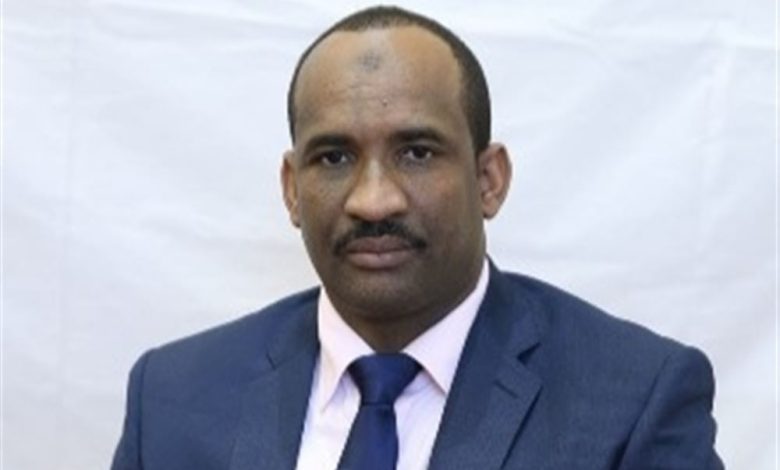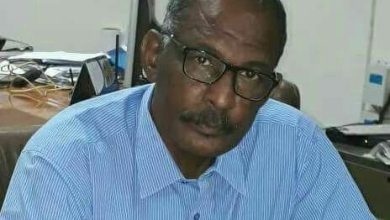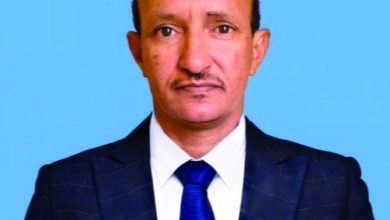Freedom of Expression: The Debate Between Politics and Law

Dr. Yasser Youssef Ibrahim
From time to time, the issue of freedom of expression resurfaces in Sudan’s media and legal landscape, along with the debate over the extent of the government’s administrative authority to regulate press freedoms. The mere discussion of these topics is a sign of national vitality, as well as a necessary and essential duty among various state institutions. It fosters the principle of peaceful dialogue between these institutions, leading to consensus on major national issues—including national security, which has long been a contentious and unresolved matter. The consequences of this lack of agreement have been profoundly dangerous for the country’s unity and sovereignty, causing internal conflicts over virtually everything and disagreements on matters requiring national consensus. Given the centrality of national security, it directly impacts the broader debate on how public freedoms are exercised and regulated among different stakeholders, including government authorities and citizens.
The Right to Restrict Freedom of Expression
A fundamental question frequently raised by human rights advocates is whether freedom of expression, as endorsed by international and regional conventions, is an absolute right or one subject to restrictions. These inquiries typically stem from two perspectives. The first is an idealistic view that ignores existing realities and seeks to judge governmental authorities by abstract, imagined standards of how public freedoms should be exercised. The second perspective is politically driven, often influenced by activist rhetoric characterized by loud voices and political mobilization, yet lacking knowledge of the legal frameworks governing these disputed matters. Under the pretense of political solidarity or professional loyalty, these perspectives often distort issues, shifting them from their legal and regulatory context to arenas of so-called “struggle.”
International conventions categorize rights into two types: absolute rights, which cannot be restricted (such as the right not to be subjected to forced labor or torture), and rights that can be limited to achieve a greater purpose. One of the most notable examples of the latter is freedom of expression. International agreements emphasize the importance of balancing freedom and responsibility. While these conventions affirm freedom of expression as a fundamental right, they also stress that this freedom should not be exploited to harm public safety or others.
The International Covenant on Civil and Political Rights (ICCPR) explicitly addresses these limitations in Article 19, which states:
“The exercise of these rights carries with it special duties and responsibilities. It may therefore be subject to certain restrictions, but these shall only be such as are provided by law and are necessary: (a) For respect of the rights or reputations of others; (b) For the protection of national security, public order, public health, or morals.”
Similarly, the European Convention on Human Rights (ECHR), in Article 10, provides that:
“The exercise of these freedoms may be subject to formalities, conditions, restrictions, or penalties as prescribed by law and as necessary in a democratic society, in the interests of national security, territorial integrity, public safety, the prevention of disorder or crime, the protection of health or morals, the protection of the reputation or rights of others, preventing the disclosure of confidential information, or maintaining the authority and impartiality of the judiciary.”
Given the word limit of this article, we cannot delve into all the restrictions imposed by international and regional conventions on freedom of expression. However, it is worth noting that Sudan’s Constitutional Document also upholds the principle of restrictions. Article 57 states:
“Every citizen shall have an unrestricted right to freedom of expression, access to and dissemination of information and publications, and access to the press, provided that this does not undermine public order, safety, or public morals, as defined by law.”
Who Has the Authority to Restrict Freedom of Expression?
International conventions stipulate that any restrictions on freedom of expression must be based on an existing law, aimed at protecting a legitimate interest recognized by international law, and necessary for safeguarding that interest. Some argue that the right to impose restrictions should be exercised solely by the judiciary, not by government authorities. However, this reflects a misunderstanding of the functions of modern states.
In reality, the executive branch is responsible for enforcing laws enacted by parliament to ensure the efficient administration of the state. Governments enforce laws passed by legislatures, and administrative law governs disputes between the state and individuals or institutions. Moreover, in presidential systems, the head of state has legislative powers under specific conditions, often issuing executive orders—commonly known in Sudan as constitutional decrees.
For example, former U.S. President Joe Biden signed a law banning TikTok in the United States based on security reports raising concerns about the app’s ties to the Chinese government and the Communist Party. In 2022, the UK Home Office issued a warning to the Iranian opposition channel National Iran Television (NITV), advising its closure due to threats from Iran. The channel’s director protested, asking, “Is it the duty of British police to expel journalists, or to protect them?”
In 2015, the French Ministry of Interior shut down five websites under anti-terrorism laws. In China (2020), the National Broadcasting Authority revoked the broadcasting license of BBC News, barring it from operating in China for allegedly violating Chinese laws. Numerous countries, including France, Britain, the Netherlands, and the European Union institutions, have banned TikTok due to security concerns, following India, which was the first to do so.
These examples illustrate that the power to impose restrictions is an administrative authority exercised by governments through ministries of interior, information ministries, security agencies, or broadcasting regulatory bodies. Sudan has its own precedent in this regard: in 2010, the Minister of Information banned BBC Radio from broadcasting due to a licensing violation after the BBC opened an office in Juba without consulting the ministry. The ban was only lifted in 2019. This case underscores a fundamental principle: the authority that grants a license also has the right to revoke it.
Ensuring Fair Use of Restrictive Powers
To prevent governments from abusing their power to impose restrictions, their actions must be legally justified, and affected parties must have the right to challenge decisions in court—either to overturn them entirely or suspend them pending a final judicial ruling.
Conclusion
A constructive dialogue between the government and the media is essential to develop a clear framework that both safeguards national security and upholds press freedom. It is equally crucial to recognize Sudan’s current challenges and ensure that regulatory measures strike a balanced approach—preserving state sovereignty while allowing the media to operate in a conducive environment.



